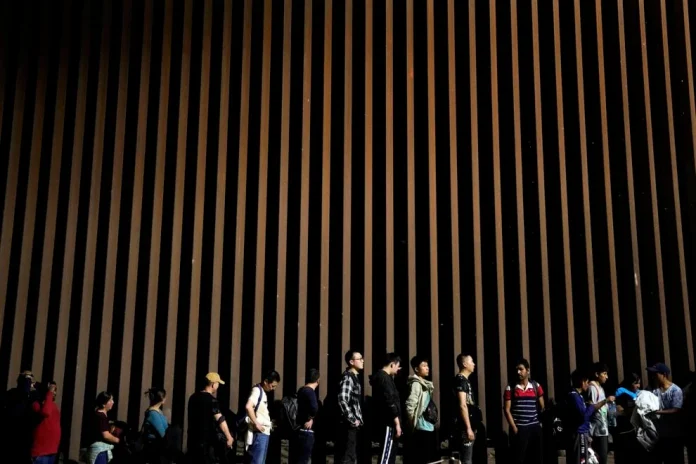Jason Owens, the Chief of the U.S. Border Patrol, emphasized the critical nature of the situation at the southern border, describing it as a “national security threat.” He expressed deep concern about the tens of thousands of migrants who have entered the country illegally over the past five months, evading apprehension.
Owens highlighted the increasing challenges faced by Border Patrol, with projections indicating nearly one million apprehensions of migrants between ports of entry along the U.S.-Mexico border in the 2024 fiscal year. This marks a continued trend, as the agency is on track to record two million apprehensions for the third consecutive year by the end of September.
The Chief underscored the issue of “known got-aways,” referring to migrants detected by surveillance but not apprehended. He raised questions about their motives, highlighting the risks associated with their clandestine entry and the uncertainties about their intentions and backgrounds.
Owens stressed that border security is integral to national security, emphasizing the need to know who is entering the country and their intentions to address vulnerabilities effectively. He remarked, “Border security is a big piece of national security. And if we don’t know who is coming into our country, and we don’t know what their intent is, that is a threat and they’re exploiting a vulnerability that’s on our border right now.”
While acknowledging that most migrants are seeking better lives or fleeing difficult circumstances, he also noted, “I wish they would choose the right way to come into our country and not start off on the wrong foot by breaking our laws.”
Regarding criminal elements, Owens said, “While a ‘very small amount’ of those apprehended at the southern border are serious criminals, such as convicted gang members or sexual offenders, most migrants are surrendering themselves to Border Patrol agents to escape poverty or violence in their home countries.”
He attributed much of the migration surge to cartel activities, indicating that cartels play a significant role in shaping the dynamics at the southern border. Owens, who took over as Chief in June 2023, advocated for stricter immigration policies, including penalties such as jail time and bans for those entering illegally, as a deterrent to unauthorized migration.
Overall, Owens’ interview highlighted the complex challenges faced by Border Patrol and the ongoing efforts to manage migration while ensuring national security. These challenges extend beyond immediate apprehensions to include the broader implications for public safety, the economy, and the social fabric of communities along the border. Owens emphasized the need for a comprehensive approach that addresses both enforcement and humanitarian aspects, recognizing the complexities of the situation and the need for multi-faceted solutions.
By: Montana Newsroom staff




